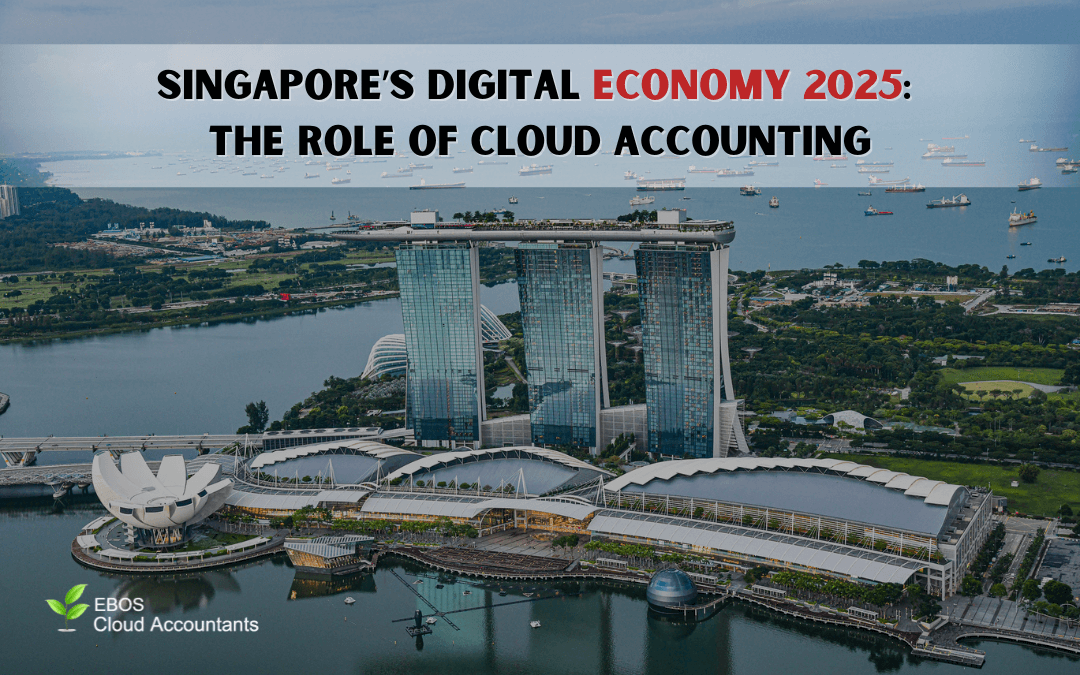Singapore’s digital economy is poised for significant growth by 2025, driven by a national push toward innovation, sustainability, and technological integration. As businesses adapt to this digital-first environment, cloud accounting has emerged as a cornerstone for financial management. This article explores the critical role of cloud accounting in shaping Singapore’s digital economy.
The Digital Transformation of Singapore’s Economy
Singapore has long been a leader in digital transformation, with initiatives like the Smart Nation strategy and the Digital Economy Framework for Action. By 2025, digital technologies are expected to contribute a substantial portion of Singapore’s GDP. Cloud solutions, including cloud accounting, are pivotal to this transformation, enabling businesses to streamline operations, reduce costs, and enhance scalability.
The Rise of Cloud Accounting
Cloud accounting refers to the use of online platforms for managing financial records, automating processes, and generating real-time reports. Unlike traditional desktop accounting systems, cloud accounting offers flexibility, accessibility, and robust data security—all essential for thriving in a digital economy.
Key Benefits of Cloud Accounting for Businesses in Singapore
- Real-Time Financial Insights: Cloud accounting tools provide up-to-date financial information, helping businesses make informed decisions quickly. This is especially critical in Singapore’s fast-paced economic landscape.
- Compliance with Regulatory Requirements: Singapore’s tax laws and financial regulations are stringent. Cloud accounting platforms often include automated updates to ensure compliance with the latest IRAS (Inland Revenue Authority of Singapore) guidelines, such as e-invoicing and GST reporting.
- Cost Efficiency: Traditional accounting systems require significant upfront investment and ongoing maintenance. Cloud-based solutions, on the other hand, operate on a subscription model, reducing overhead costs and making advanced financial tools accessible to SMEs.
- Enhanced Collaboration: Cloud accounting facilitates seamless collaboration between teams and external stakeholders, such as accountants and auditors. With secure, remote access, financial management becomes more agile and efficient.
- Data Security and Backup: Leading cloud accounting platforms prioritize data security with encryption, multi-factor authentication, and automatic backups. This minimizes risks associated with data breaches or system failures.
Driving Innovation and Productivity
Cloud accounting doesn’t just streamline financial processes; it empowers businesses to innovate. By automating routine tasks like invoicing and expense tracking, companies can focus on strategic growth initiatives. Moreover, the integration of cloud accounting with other digital tools—such as enterprise resource planning (ERP) systems and artificial intelligence—offers even greater productivity gains.
Supporting SMEs in the Digital Economy
Small and medium enterprises (SMEs) form the backbone of Singapore’s economy, contributing nearly half of its GDP. Cloud accounting is particularly beneficial for SMEs, offering them access to advanced financial tools previously available only to larger corporations. This levels the playing field, enabling SMEs to compete in a globalized, digital marketplace.
The Road Ahead
As Singapore’s digital economy continues to evolve, the adoption of cloud accounting will likely accelerate. The government’s support for digitalization—through grants such as the Productivity Solutions Grant (PSG) and the Enterprise Development Grant (EDG)—underscores the importance of cloud solutions in building a resilient and innovative business ecosystem.
Businesses that embrace cloud accounting now will not only improve operational efficiency but also position themselves as leaders in Singapore’s digital economy by 2025. By leveraging the power of cloud technology, companies can adapt to an ever-changing landscape, meet regulatory demands, and unlock new opportunities for growth.
Conclusion
Cloud accounting is more than a financial management tool; it is a driver of digital transformation in Singapore’s economy. As we approach 2025, its role will only grow in significance, empowering businesses to thrive in an increasingly digitalized world. For companies looking to stay competitive, adopting cloud accounting is no longer optional—it is a necessity.
Check out our website at https://ebos-sg.com/ to explore more articles and discover how our Cloud Accountant Services can support you on your business.







